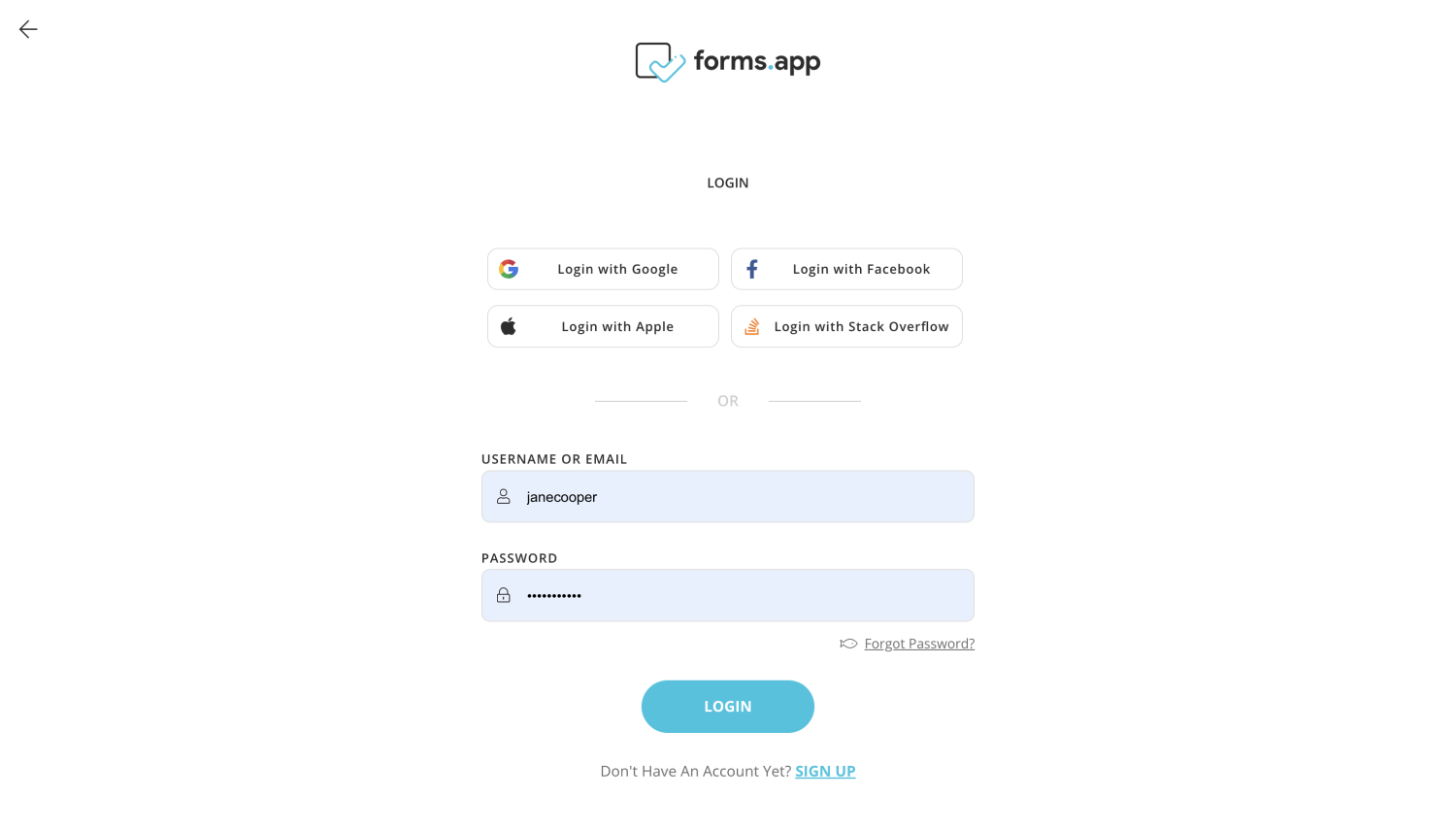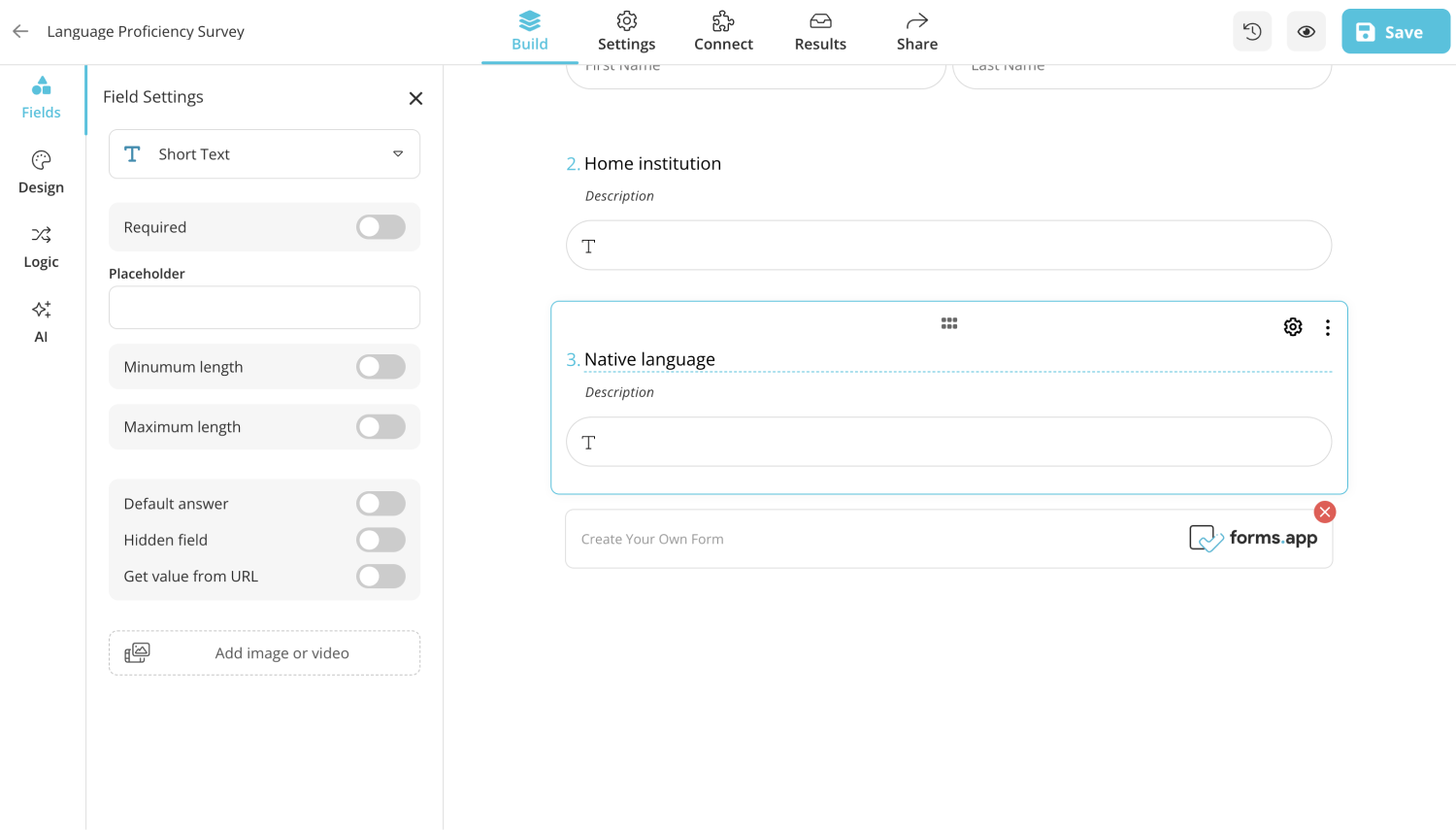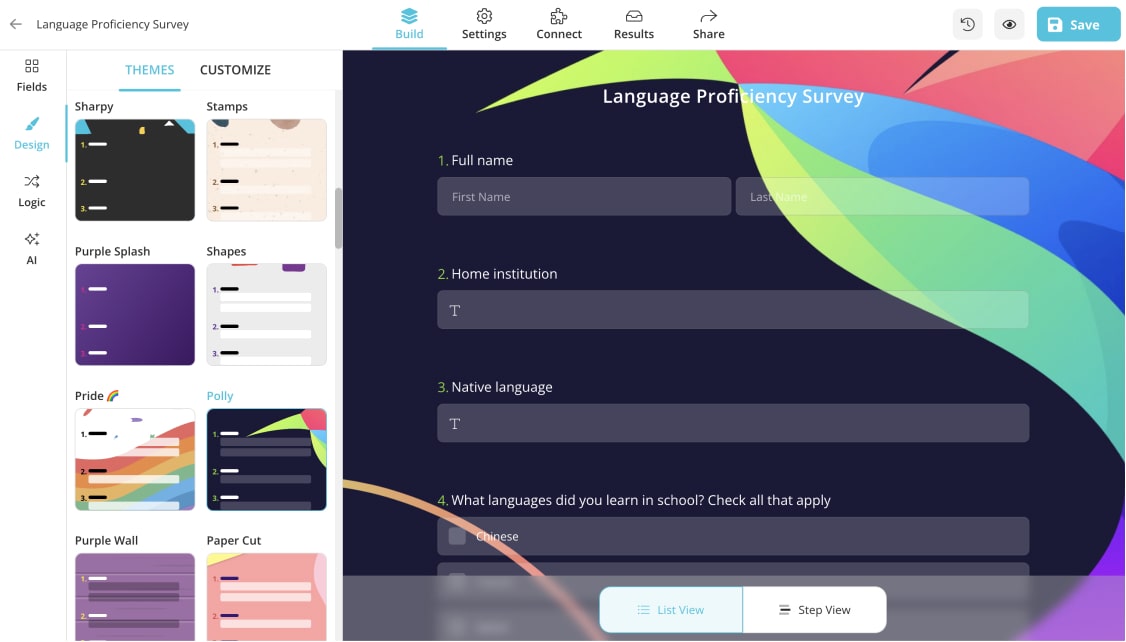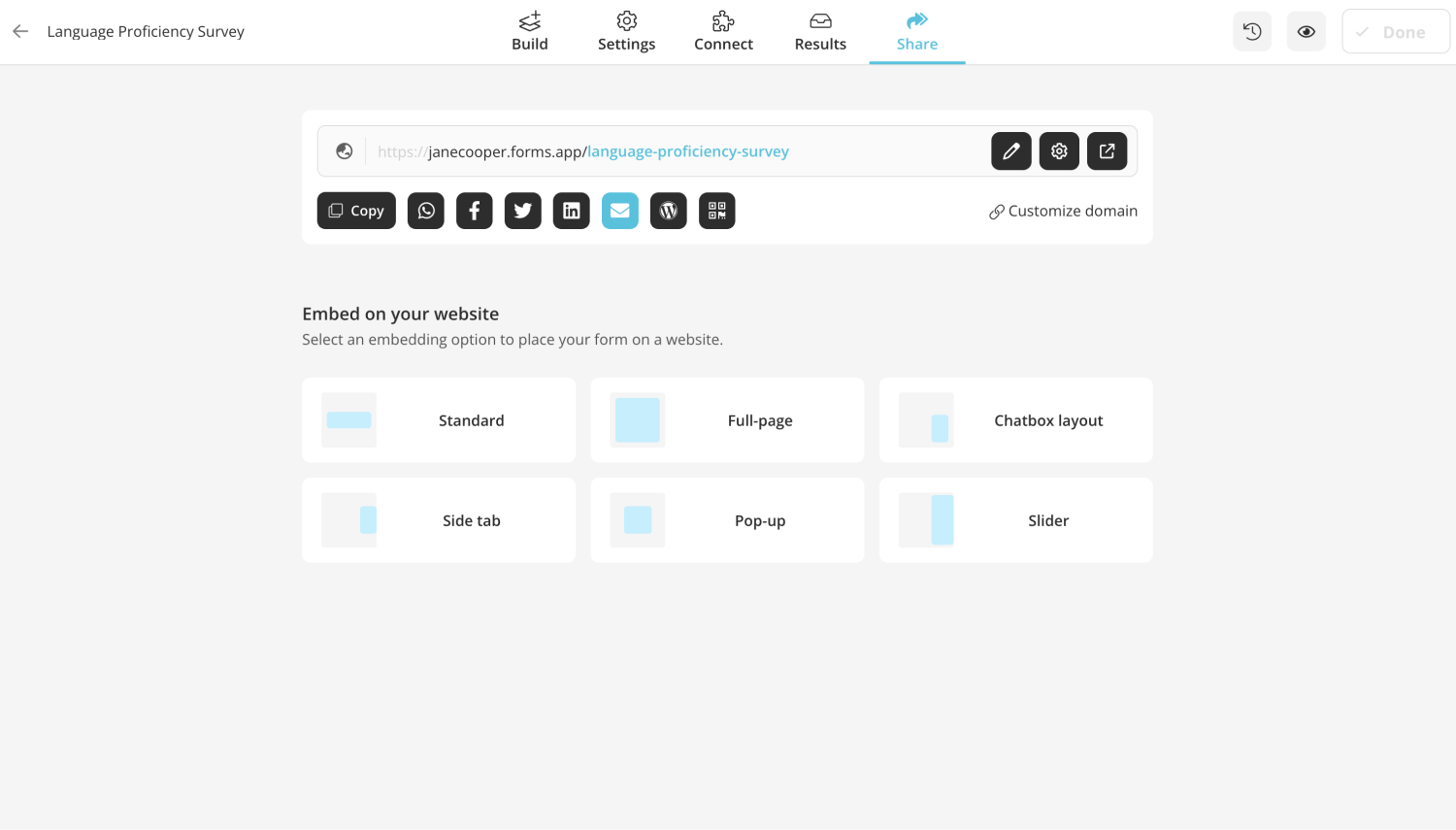The mother tongue is the first language a person is exposed to in their society from birth. Every person has a mother tongue. Some people want, prefer, or have to learn a second or foreign language. There are many reasons why a language questionnaire is carried out.
It is possible to evaluate a person's proficiency and examine how people feel about various languages. This article will explain the definition of a language questionnaire and 40 essential language survey questions to ask in your surveys.
What is a language questionnaire?
Language is being studied on a global scale for several reasons, evaluating the differences and similarities in the speech of communities speaking the relevant speech forms, noting the meaning or collecting details of the linguistic structure, assessing the vitality of disappearing languages, and providing preliminary definitions of languages in linguistically undefined areas.
The language questionnaire is a document that can be used to learn details about the native speaker, language proficiency, learning a language, and learning a second language. According to your research, there are different language questionnaire types:
- Language questionnaires for students,
- Language questionnaires for native speakers
- Language questionnaires for foreign language speakers
- Language questionnaires for proficiency
- Language questionnaires for sociolinguistics
- Language questionnaires for applied linguistics
You can use the language questions we share below in your language questionnaire.
40 must-ask questions for language surveys
Whether you are a native or a foreign language speaker, you can easily and quickly learn how people feel about a language, their thoughts, and information about their language use with a language questionnaire. Here are the best 40 survey questions for a language survey.
Questions about language proficiency
The language proficiency survey questions enable researchers to learn all detailed information about the language proficiency. Depending on your needs, you can select the questions and add your language survey.
1. How did you learn English?
a) Self-study
b) Online courses
c) Language school
d) Private tutor
e) Immersion program
2. Would you rate your language proficiency on a scale of 0-10?
3. How does a person become a proficient language user?
a) By taking a course
b) By typing
c) By reading
d) By watching
e) By talking
f) By listening
g) Other (Please specify)
4. If not used frequently, can language proficiency deteriorate over time?
a) Yes
b) No
c) I have no idea
5. Does learning a language require formal education and training, or can it be picked up naturally?
a) Language is learned through education
b) Language is learned naturally
c) I have no idea
Questions about native language
Native language survey questions enable you to learn native language information about the participants. You can ask for age, gender, and native language. You can use the questions above according to your needs.
6. What is your native language/ languages?
a) English
b) Arabic
c) Chinese
d) Portuguese
e) Spanish
f) Russian
g) Turkish
h) French
i) German
7. Where were you born?
a) Europe
b) Africa
c) United States
d) Canada
e) Asia
f) Australia
8. Where do you live now?
a) Australia
b) Africa
c) Canada
d) United States
e) Asia
f) Europe
9. What is your gender?
a) Female
b) Male
c) I prefer not to say
10. How old are you?
a) Under 18
b) 18-24
c) 25-34
d) 35-44
e) 45-54
f) 55-64
g) 64+
11. What is your education level?
a) Elementary school
b) High school
c) College
d) Graduate school
12. When you go to a country where another language is spoken, do you prefer to speak its language, your mother tongue or English?
a) My mother tonguage
b) Language of that country
c) English
13. It is essential for people to learn the national language.
a) I agree
b) I feel neutral
c) I disagree
14. When someone cannot speak my language, it bothers me.
a) I agree
b) I feel neutral
c) I disagree
15. Do you code-switch when speaking a second language?
a) Yes, often
b) Yes, sometimes
c) Rarely
d) Never
Questions about preferred language
People may prefer to learn a different language besides their mother tongue. By using the questions about the preferred language, you can learn detailed information about individuals' preferred language. You can use preferred language questions according to your needs.
16. What is your preferred language?
a) English
b) Arabic
c) Italian
d) Chinese
e) Korean
f) Turkish
g) Spanish
h) Other (Please specify)
17. How many languages do you speak well?
a) 1
b) 2
c) 3
d) 4
e) 5+
18. How many other languages have you studied besides your native languages(s)?
a) 1
b) 2
c) 3
d) 4
e) 5+
19. What is the language you aim to learn?
a) Arabic
b) Spanish
c) Korean
d) French
e) Chinese
f) Italian
g) Other ( Please specify)
20. How frequently do you hear other languages spoken?
a) Daily
b) Several times a month
c) Several times a year
d) Never
21. Do you find it simpler to communicate in your preferred language?
a) Yes
b) No
c) I have no idea
22. Do you believe that learning multiple languages is essential?
a) Yes
b) No
c) I have no idea
23. How often do you code-switching when speaking a foreign language?
a) Very often
b) Sometimes
c) Rarely
d) Never
24. Where did you learn your preferred language?
a) School
b) Online Course
c) Self-Study
d) Tutoring
e) Immersion
f) Other (Please specify)
25. What word do you have the most difficulty pronouncing in your preferred language?
26. What word do you have the most difficulty writing in your preferred language?
27. What advantages do bilingual people enjoy?
Questions about language barriers
Individuals are likely to encounter barriers when learning a new language. You can get the participants’ ideas to facilitate and overcome the difficulties in language learning. You can use questions about the language barriers we shared above.
28. What difficulties do language teaching and learning present?
29. What varieties of language barriers are most typical?
a) Vocabulary
b) Grammar differences
c) Accent
d) Cultural differences
e) Other (Please specify)
30. Do you think a country should have an official language?
a) Yes
b No
c) I have no idea
31. What is the ideal number of official languages for a nation?
a) No language should be officially designated
b) Only one
c) Not more than a few
d) Enough to adequately represent the population
32. How would you characterize the general perception of foreign language speakers in the nation where you currently reside?
a) Tolerant
b) Neutral
c) Intolerant
Questions about learning a language
You can find out the best method of learning a new language. You can find out the best way of learning a new language. It is easier to learn a language, whether it's necessary to take a course. You can use the learning a language questions we shared.
33. What is the method you use when learning a foreign language?
a) Reading book
b) Watching series/ film
c) Exposure to that language
d) Taking a course
34. Is classroom instruction or immersion the best way to learn a language?
a) Classroom instruction
b) Immersion
c) I have no idea
35. How do you maintain your desire to keep learning a language?
36. Should you focus more on grammar or vocabulary when learning a foreign language?
a) You should focus on grammar
b) You should focus on vocabulary
c) I have no idea
37. Is learning a language easy for adults or kids?
a) Adults
b) Kids
c) Both of them
d) I have no idea
38. How much time does it take to learn a language well?
a) 1-3 weeks
b) 1 month
c) 3 month
d) 5 month
e) 8 month
f) 1 year
g) 3 year
h) 4+ year
39. Can people learn a foreign language by themselves, or do they need a tutor?
a) Yes, they can learn by themselves
b) No, they need a tutor
c) I have no idea
40. How can speakers of a foreign language improve their speaking skills?
How to create a language survey
In language questionnaires, asking the right people the right questions is essential. If a person is a native speaker, you should ask native speaker questions. On the contrary, if a person speaks a second or foreign language, you should ask preferred language questions. You can easily and quickly create your language survey on forms.app. Here are the steps to create your professional-looking language survey without writing any code on forms.app:
1 - Create an account or sign in to your existing account
You can create a compelling and professional language questionnaire on forms.app. First, you can log into your existing account. You can also create your account and sign up for free in seconds if you don’t have an account.

Create an account or log in to forms.app
2 - Choose ready-to-use templates or begin to form scratch
forms.app, one of the best survey-maker tools, offers its users ready-made attractive, colorful survey templates on many topics. You can easily create your language survey by choosing these ready-to-use templates. You can also create your language survey from scratch.

Choose a template, generate a form with AI, or start with a blank form
3 - Edit your language questionnaire
You can easily edit your language survey according to your needs. You can change or add new questions you want to ask in the survey. You can also remove the ready-made questions. You can easily use the actual language survey questions examples we shared above in your survey.

Add questions to your language questionnaire
4 - Edit your survey design
Selecting a theme is essential for improving the appeal of your survey. If the questionnaire is well-prepared, more people will respond to the survey. forms.app offers many attractive themes. You can use pre-made themes easily by making your selection from them.

Create an engaging design for your questionnaire
5 - Adjust the settings and share your survey
It is ready to use after you complete all settings in your survey. You can save the language survey you have designed and share it with the participants by sharing a link, sending an email, or embedding your survey on your website.

Share your questionnaire with the world
Wrapping it up
In conclusion, a language questionnaire is a type of survey created to learn more about people's language knowledge, usage, and learning habits as well as their preferences and attitudes toward various languages.
You can ask open-ended, close-ended, and Likert scale questions to survey participants. You can use the language survey questions we shared above. Create your language questionnaire without any expert knowledge on forms.app.
Sena is a content writer at forms.app. She likes to read and write articles on different topics. Sena also likes to learn about different cultures and travel. She likes to study and learn different languages. Her specialty is linguistics, surveys, survey questions, and sampling methods.



